Using cancer as clickbait is ubiquitous and worrisome.
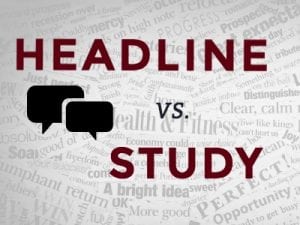 It’s one thing to highlight studies that represent genuine progress, and quite another to write hopeful headlines about studies that are clearly not ready for prime time. Such is the case with 4 of the stories we feature below.
It’s one thing to highlight studies that represent genuine progress, and quite another to write hopeful headlines about studies that are clearly not ready for prime time. Such is the case with 4 of the stories we feature below.
It may seem like too widespread a problem to have an impact on, but there is a way to make a difference. If you see a cancer story where you know there’s a disconnect between a hopeful headline and a scant study, make your voice heard — email the author or editor and tweet them your disapproval.
Let news organizations know that you want more substance, and less pablum.
It’s precisely why we regularly take a look back at the news stories and releases we’ve systematically reviewed to see if the headlines and the content are in synch. This is what we found when we looked back over the past month.
News RELEASE report card: 9 of 12 (75%) headlines overstate evidence (we list 3 examples below)
Headline: Milk protein shown to alleviate chemotherapy side effects
 Study: A very preliminary study of 12 cancer patients investigating whether taking lactoferrin supplements improved their sense of taste and smell.
Study: A very preliminary study of 12 cancer patients investigating whether taking lactoferrin supplements improved their sense of taste and smell.
Our review: The news release provides no supportive data, never mentions how small the study is, and doesn’t explain the basic design or multiple limitations of the study — including the lack of a control group.
Our reviewers said: “To then write a headline broadly claiming alleviation of chemotherapy side effects and state the ‘findings could bring relief to millions of patients undergoing cancer treatment’ is a textbook example of overreaching and unjustified hype with significant potential for misleading — not ‘bringing relief to’ — millions.”
Headline:Testosterone replacement therapy may slow the progression of COPD
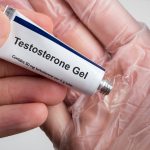 Study: An observational study of middle aged and older men, their consumption of testosterone replacement therapy, and how it impacted hospitalizations for respiratory problems.
Study: An observational study of middle aged and older men, their consumption of testosterone replacement therapy, and how it impacted hospitalizations for respiratory problems.
Our review: “If testosterone replacement therapy (TRT) slows the progression of COPD in men by producing a positive lung function, this could indeed be a public health advance.
Observational studies, however, are problematic in that the two cohorts of men observed (those who take TRT and those who don’t) may be different in other fundamental ways … Studies like these allow us to draw conclusions, but only that there is an association — not that TRT caused a reduction in COPD.”
Headline: New blood test detects early stage pancreatic cancer
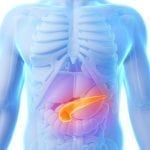 Study: A retrospective study designed to see how accurate a blood test is at picking up biomarkers in patients known to have Stage I or II pancreatic ductal adenocarcinoma (PDAC).
Study: A retrospective study designed to see how accurate a blood test is at picking up biomarkers in patients known to have Stage I or II pancreatic ductal adenocarcinoma (PDAC).
Our review: The headline is misleading because the results are very preliminary, and the blood test was given to those already known to have cancer. Our reviewers noted:
“For many readers the headline might suggest there’s a new screening test currently available that can detect this very lethal cancer in anyone, when that’s clearly not the case.”
News STORY report card: 5 of 11 (45%) headlines overstate study evidence (we list 3 examples below)
Headline: Merck KGaA, Pfizer’s immuno-drug shown to alleviate kidney cancer
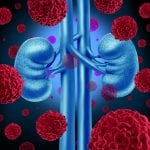 Study: No study here; rather a company announcement of an ongoing trial of a combination therapy reportedly showing longer progression-free survival (PFS) of patients with advanced renal cell carcinoma.
Study: No study here; rather a company announcement of an ongoing trial of a combination therapy reportedly showing longer progression-free survival (PFS) of patients with advanced renal cell carcinoma.
PFS is a surrogate for outcomes that patients truly care about such as overall survival and quality of life — and does not necessarily indicate that the kidney cancer was “alleviated.”
Our review: “The [Reuter’s] story takes the company’s word for the announced benefit without evaluating the claims and fails to address cost or side effects in any way … This story is, essentially, a news release. That does a disservice to the story’s readers and to the newsroom it came from.”
Headline: Study: Medical marijuana relieves range of symptoms with no serious side effects
 Study: This US News story drew largely from a news release about two studies purporting to show sweeping health benefits of marijuana, based on user-reported data from the Releaf phone app.
Study: This US News story drew largely from a news release about two studies purporting to show sweeping health benefits of marijuana, based on user-reported data from the Releaf phone app.
Our review: “There was no critical examination of the underlying evidence, and this story is basically providing free marketing for all sorts of things the authors of the study have financial stakes in.”
Headline: Doctors use bacteria as weapon against cancer
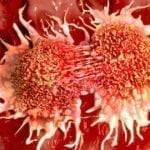 Study: A safety trial of 24 patients designed to establish the safety (not the efficacy) of injecting a weakened form of bacterium into tumors.
Study: A safety trial of 24 patients designed to establish the safety (not the efficacy) of injecting a weakened form of bacterium into tumors.
Our review: “In this story, the message that the bacterium ”appears to target malignant cells and could provide a new means of fighting cancer’ is overly optimistic, given that this is a study that was designed to establish a safe dosage level, not show whether there’s a meaningful clinical benefit.”
You can find more from our Headline vs. Study series HERE
